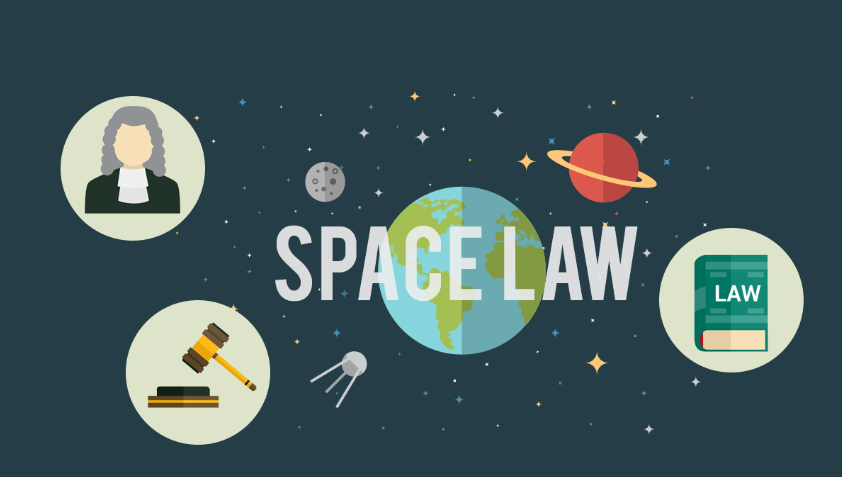
The realm of space tourism is rapidly evolving from science fiction to reality. Companies like Virgin Galactic and Blue Origin are poised to make sub-orbital flights accessible to the wealthy and adventurous, fueling an entirely new industry. With projections estimating a market worth billions within the decade, space tourism is set to revolutionise our perspective on travel.
However, this novel industry pushes the boundaries of traditional legal frameworks. Outer space remains an environment with unique challenges and risks, requiring the development of equally unique legal solutions. For aspiring legal professionals, understanding this emerging field of space law presents exciting and potentially lucrative career opportunities.
The Current Legal Landscape

The foundation of international space law lies in the Outer Space Treaty of 1967. It outlines key principles that govern activities in space:
- Peaceful Use: Space is reserved for peaceful exploration and cooperation.
- State Responsibility: Nations are liable for damage caused by their space objects and are responsible for supervising national space activities.
- Non-Appropriation: No nation can claim ownership of celestial bodies.
Beyond this treaty, countries are developing their own national space legislation. The USA, for example, passed the Commercial Space Launch Competitiveness Act (2015) to facilitate the growth of the private space sector. India, with its growing space aspirations, is also in the process of drafting its own comprehensive space law.
Key Legal Issues in Space Tourism

As space tourism moves towards reality, specific legal questions and challenges emerge:
- Liability: In case of accidents or damage, who holds responsibility? Current aviation laws are insufficient to address the unique complexities of spaceflight.
- Jurisdiction: How would legal disputes in space be resolved, especially when tourists hail from different countries? The existing legal framework is vague on this issue.
- Passenger Rights: What minimum safety standards should be mandated? Should space tourism companies be subject to consumer protection laws? How does informed consent function with the inherent risks of space travel?
- Environmental Impact: The potential impact of increased space launches on the environment needs assessment and regulations to minimise negative ecological consequences.
The Future of Space Law

International organisations like the United Nations Office for Outer Space Affairs (UNOOSA) are working to develop more specific frameworks for space tourism. Countries are grappling with updating national laws to accommodate this new industry. However, considering the pace of technological advancement, a significant challenge is creating laws that remain adaptable and relevant.
Alongside regulatory advancements, new and complex legal challenges are likely to emerge. Ethical considerations surrounding resource extraction on celestial bodies and the equitable exploration of space will demand innovative solutions.
Space Laws in India: A Frontier Awaiting Exploration

While India has carved its niche in the global spacefaring community with ambitious missions like Chandrayaan and Mangalyaan, a crucial aspect remains largely uncharted – a comprehensive space law framework. This legal vacuum presents both challenges and exciting opportunities, particularly for those considering a career in space law.
Unlike the United States with its well-established Space Law framework, India relies on a patchwork of regulations and international treaties. The Indian Space Research Organisation (ISRO) Act of 1969 establishes ISRO and empowers it to conduct and promote space research in India. However, it doesn’t encompass the burgeoning private space sector.
India’s space policy is largely based on international treaties and emphasises peaceful use, state responsibility, and non-appropriation of celestial bodies. However, it lacks the specificity required for a burgeoning space tourism industry or the complexities of private space exploration.
The absence of a robust space law framework means that apart from liability in case of mishaps, space tourism companies currently operate in a regulatory grey area. Clear guidelines are needed regarding safety standards, passenger rights, and environmental impact assessments. Also, the lack of a clear legal framework creates uncertainty for potential investors in the Indian space sector, hindering its growth.
Right now, the Indian government is actively drafting a National Space Law that aims to address the legal aspects of private space activities, including space tourism. India also actively participates in international discussions on space debris mitigation, a crucial aspect of sustainable space exploration.
Career Opportunities for Law Students
The growing space tourism industry offers unique opportunities for those who want to pursue a career in space law. The niche nature of this field means that those specialising in it could be in high demand with industry stakeholders. Space lawyers are required for:
- Advising and Drafting Contracts: Space lawyers would be crucial in drafting complex contracts between space tourism companies, launch providers, and their clients.
- Risk Assessment and Mitigation: Identifying and addressing potential legal risks is essential for companies operating in this high-stakes industry.
- Regulatory Compliance: Navigating evolving national and international space tourism laws will require specialised legal advice.
Conclusion
The rise of space tourism necessitates a robust legal framework to safeguard passengers, ensure accountability, and promote the sustainable use of space. The legal landscape governing space tourism laws is in a state of flux, presenting thrilling opportunities for law students to contribute to shaping its future.
As the space tourism industry matures, the demand for space lawyers is set to soar. For those with a passion for both space and the law, a career in space law offers a unique opportunity to be at the forefront of a truly groundbreaking field.




